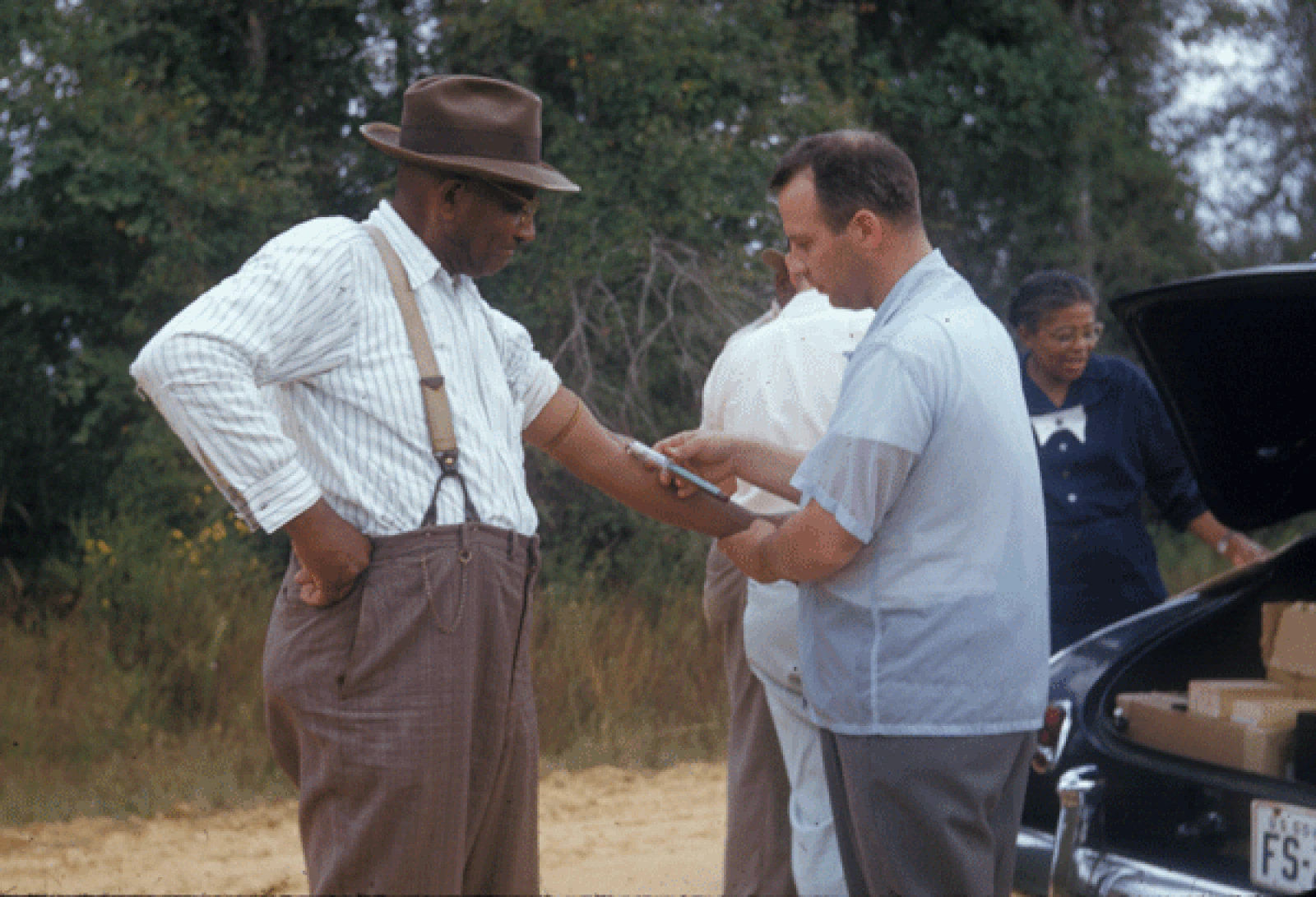In the annals of medical history, a chilling episode stands out as a stark reminder of the ethical boundaries that must never be crossed. The Tuskegee Syphilis Experiment, conducted in Macon County, Alabama, from 1932 to 1972, was an infamous and deeply disturbing study that left an indelible mark on the field of medicine. It was an egregious violation of human rights, perpetuating racial discrimination and profoundly betraying the trust of vulnerable Black participants. Today, the wounds of Tuskegee continue to impact the relationship between Black communities and the government, eroding trust and highlighting the importance of addressing historical injustices. Let us delve into the harrowing tale of the Tuskegee Syphilis Experiment, exposing the dark underbelly of medical research and its lasting consequences.
Background
The experiment was initiated by the United States Public Health Service (USPHS) in collaboration with the Tuskegee Institute (now Tuskegee University). The aim was to study the natural progression of syphilis in Black men. The participants, mostly impoverished sharecroppers, were lured into the study under the pretense of receiving free healthcare for “bad blood.” The USPHS, however, had ulterior motives that would become increasingly evident as the years passed.
Betrayal of Trust
Shockingly, the researchers knowingly withheld treatment from the participants, even after the discovery of penicillin as an effective cure for syphilis in the 1940s. Instead, the study continued to observe the debilitating effects of the disease, leading to immense suffering and death among the unwitting subjects. This prolonged withholding of treatment is undoubtedly the most disturbing aspect of the Tuskegee Experiment, and a severe breach of medical ethics.
Ethical Implications
The Tuskegee Syphilis Experiment not only violated basic ethical principles, but also highlighted the pervasive racial prejudices prevalent during that era. The participants were predominantly poor Black men who had limited access to healthcare and were vulnerable to exploitation. The experiment perpetuated racial discrimination by denying them the care that could have saved their lives. The medical community’s complicity in this atrocity, combined with the government’s betrayal of trust, deeply scarred the relationship between Black communities and institutions.
Public Outcry and Fallout
The true nature of the Tuskegee Experiment came to light in 1972 when a whistleblower exposed its unethical practices to the public. The revelation sparked outrage and led to the termination of the study immediately. The fallout included a congressional investigation, a settlement for the surviving participants and their families, and substantial reforms in research ethics guidelines. However, the damage had been done, and the repercussions still reverberate today.
Legacy and the Lingering Trust Deficit
The Tuskegee Syphilis Experiment left an indelible mark on medical research ethics and has contributed to a persistent trust deficit between Black communities and the government. The betrayal of trust and the government’s failure to protect its citizens, specifically targeting Black individuals, continues to fuel skepticism and suspicion. It has had a lasting impact on Black people’s attitudes toward medical research, leading to hesitancy and skepticism about participating in studies and trusting healthcare systems.
Rebuilding Trust and Moving Forward
Addressing the trust deficit requires acknowledging the historical injustices and actively working towards reconciliation. Government institutions and healthcare systems must demonstrate transparency, accountability, and cultural sensitivity to foster trust. Increased representation of Black individuals in research and healthcare leadership can help bridge the gap and ensure that the voices and concerns of marginalized communities are heard and respected.
Final Thoughts
The Tuskegee Syphilis Experiment represents a dark chapter in the history of medicine. It exposed the depths of ethical misconduct and racial discrimination within the medical community, resulting in immense suffering for the participants. Moreover, it contributed to a profound trust deficit between Black communities and the government, specifically in the realm of healthcare and research. Healing this rift requires a concerted effort to address historical injustices, foster transparency, and ensure equitable participation and representation. By confronting the horrors of the Tuskegee Experiment, we can strive for a future where trust is rebuilt, racial disparities are eradicated, and healthcare is accessible and equitable for all.




